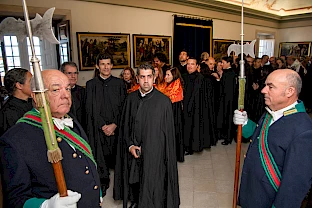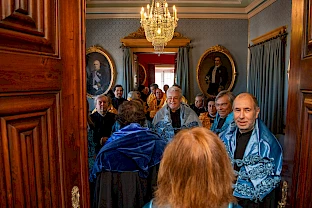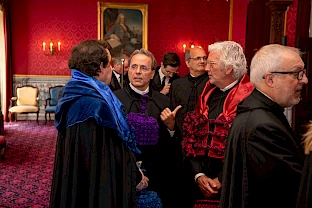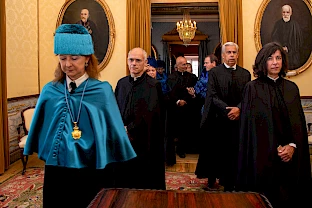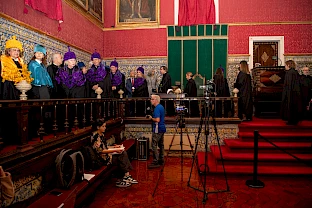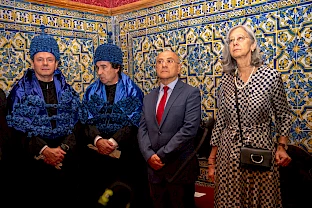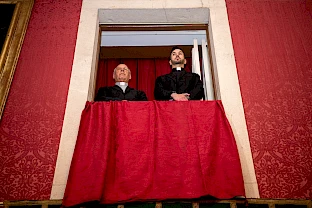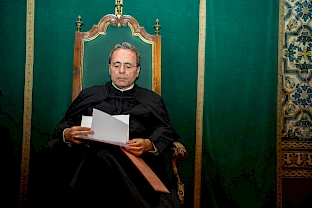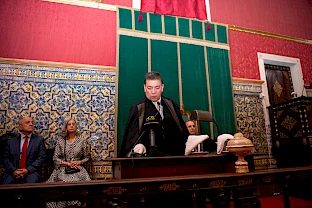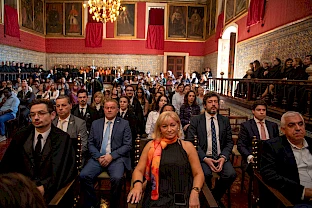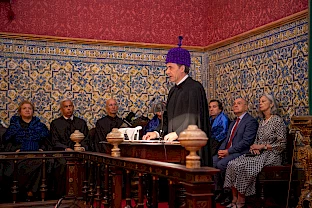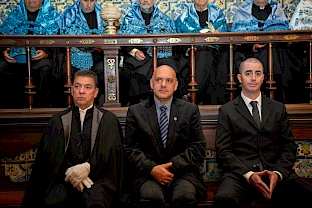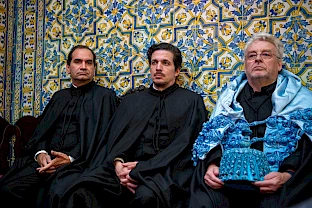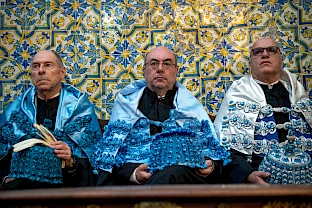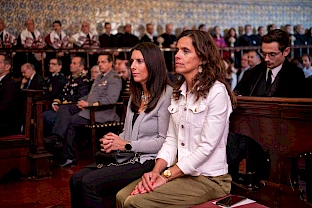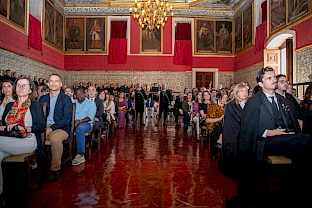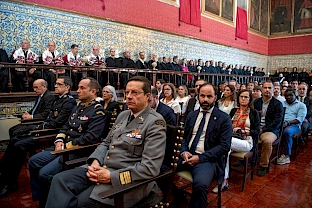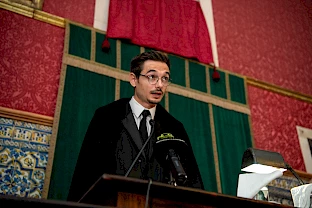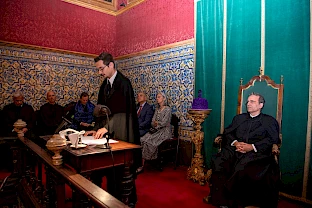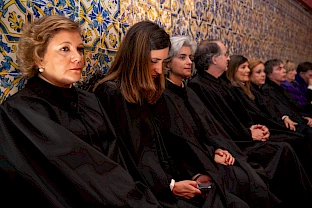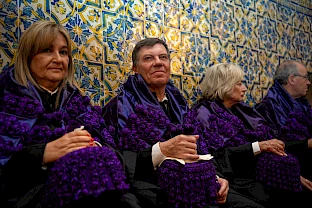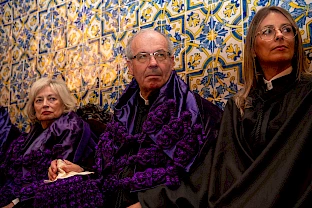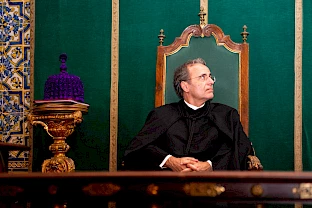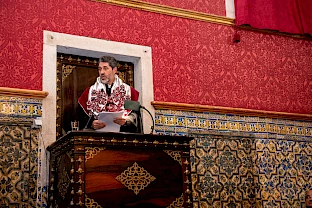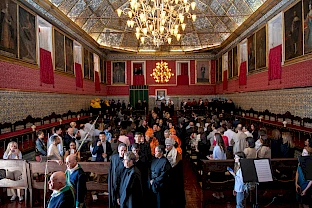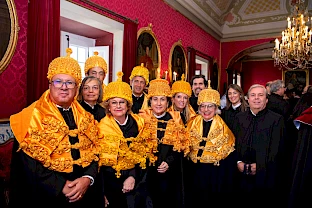Optimism marks opening of UC’s 2025/26 academic year
The Solemn Opening ceremony took place on 1 October in the Great Hall of Acts of the University of Coimbra (UC).
With an optimistic outlook, UC Rector Amílcar Falcão stated that the academic year 2025/26 “is set to go well,” despite the “added challenges” facing the University. Ongoing construction works, including on student residences, will already lead to “a more than 50% increase” in available beds next year, he noted.
Student support remains a priority. From 2 October, “all students receiving scholarships from the Directorate-General for Higher Education will pay only €2.00 for a social meal,” the Rector announced. The UC will also maintain the standard social meal price at €2.40, “mindful of the difficult times the country is facing.”
On the National Admission Contest (CNA), Falcão acknowledged results were “below expectations compared with last year,” but highlighted that UC was “the only institution outside the Lisbon and Porto metropolitan areas to achieve an enrolment rate above 90%.”
Carlos Magalhães, President of the Coimbra Students’ Union (AAC) General-Directorate, described the start of the academic year as “a moment of hope” for newcomers and continuing students alike. He underlined that “thousands begin a journey that will mark their lives forever,” many experiencing autonomy and integration for the first time. “It is this energy that gives meaning to the University. Students give meaning to the University,” he said, reaffirming AAC’s role as a “critical yet constructive partner” and “a community above all.”
The session concluded with the traditional Oração da Sapiência, delivered by Professor Paulino Maria de Freitas Teixeira of the Faculty of Economics. Reflecting on the historical weight of the moment, he noted its origins with Prince Henry the Navigator and the value it places on science. Speaking on “Causality in Economics: Knowledge Built from Experience,” the Professor stressed that economics must be understood through lessons drawn from practice and research. “Scientific knowledge only gains meaning when it engages with experience and society,” he concluded.

